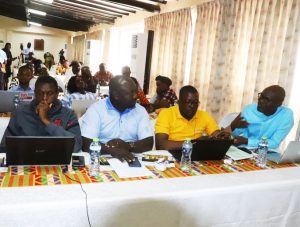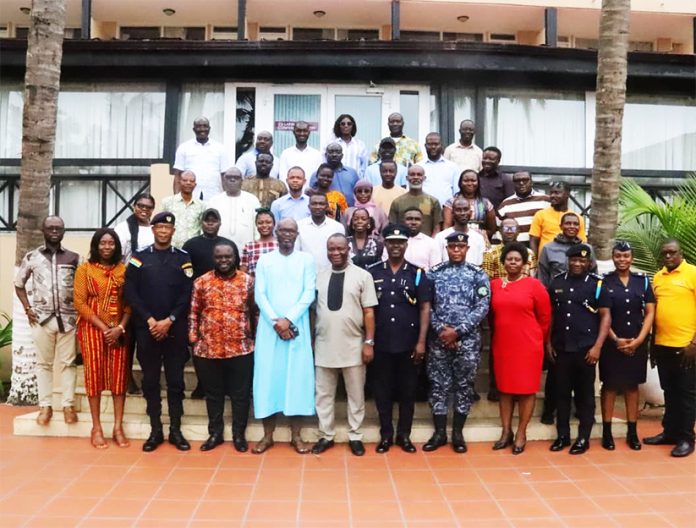The Ghana Revenue Authority (GRA) says it has played a crucial role in countering threats to Ghana’s territorial waters and boosting revenue for the state.
According to CRO Charles Cofie Lumor, Head of the Preventive Operations Unit, the GRA’s success can be attributed to its strong relationships with other security agencies.
“The bond between us and the security agencies has yielded significant results in mobilizing more revenue for the state,” CRO Lumor said. “Our efforts in clamping down on illegal activities such as oil bunkering, pair-trawling, and unregulated fishing have generated substantial revenue for the country.”
The Preventive Operations Unit of the GRA, CRO Lumor noted, collaborates closely with the navy, marine police, ports and harbours security, and the Ghana Maritime Authority to detect and prevent smuggling and other illegal activities.
This partnership has led to numerous arrests on the high seas and significant revenue for the state, he asserted.

During a training program for members of the Parliamentary Press Corps (PPC) in Accra, on Friday, August 23, 2024 CRO Lumor emphasised the importance of information sharing and collaboration among security agencies.
“We work closely with the navy, who provide us with a platform to operate on the high seas. They also execute duties on our behalf and we act on any intelligence they gather.”
The training program covered various tax regimes, taxpayer rights and obligations, and customs processes and procedures.
The GRA’s efforts, CRO Lumor revealed, have also helped prevent revenue evasion, with fishermen who catch fish in international waters but claim to have caught them in Ghana’s territorial waters being caught and made to pay duty.
“This has helped boost revenue and prevent losses,” CRO Lumor asserted.
The Preventive Operations Unit is part of the Customs Division of the GRA, which has a para-military status and serves as the first line of defense in peacetime. Its primary functions include protecting and detecting evasion of customs duties, enforcing national and international laws, and supervising and securing entry and exit points.
By Stephen Odoi-Larbi








